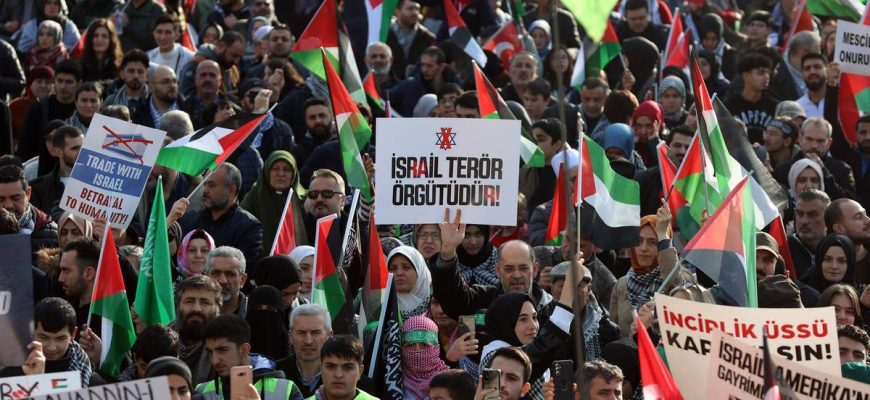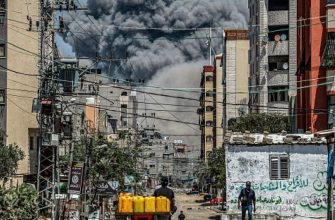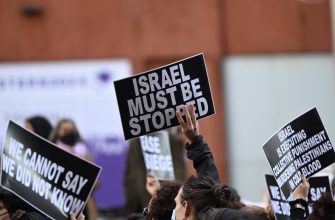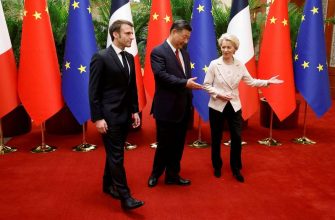Thousands of young people in Istanbul and across Turkey have been marching for a free Palestine since October 7th. However, protesters have walked a fine line between arrest and freedom, which is often based not on permits or peacefulness, but on efficiency or lack thereof.
Turkish activists like Thousand Young People for Palestine may not be able to control Israeli policies, but they can control how Turkey responds to them. Unfortunately, this is how 43 of their members ended up under arrest during a protest on Istiklal Street on April 6 demanding a trade embargo on Israel.
Protesting a foreign entity such as Israel is acceptable and even encouraged, but directing the same anger against Turkish policies that strengthen the Zionist state is where the line is drawn. Naturally, Turkish President Recep Tayyip Erdogan’s Justice and Development Party (AKP) organized its own protests, involving tens of thousands of participants, without any such persecution.
The difference is simple: one is a protest demanding a change in Turkish government policy and an end to trade with Israel; the other is a parade that demands nothing, achieves nothing, and is sponsored by the ruling party. Protest is a tool of the people against the powers that be; those who have access to the control rooms have no reason to take to the streets.
OPINION: Will Qatar’s withdrawal from the Gaza mediation process allow Turkey to play a larger role?
The struggle for the liberation of Palestine forced Muslim countries to confront contradictions between their ideologies and policies, be it Islamism, pan-Arabism or anti-imperialism. Türkiye is no different. For Turkey, this meant a transition to NATO membership, although it was often at odds with its Western allies. And for the AKP, that meant managing a business class bloc that criticizes Israel but still makes deals with Israeli companies, and a predominantly Muslim base that wants no role in the Middle East as a client state of the West. The AKP came to power as a conservative, pro-business Muslim party. Israeli trade represents a potential rift in this coalition.
Historically, Erdogan has acted primarily through rhetoric rather than action. Despite diplomatic tensions and periodic public spats over Israel’s treatment of Palestinians, the AKP has ensured steady growth in trade with Israel. Some sources claim that after October 7, Turkish exports even increased, some of which even included civilian weapons.
The Turkish president’s condemnation of Israel has been strong, but his policies have been weak, leaving the country’s pocketbook at odds with its public image. This is subject to change. When this happens, it will be because many of the same protesters were arrested on April 6th.
The AKP’s position on Israel and Palestine is complicated by its mixed base of supporters and Turkey’s geopolitical position as a Western ally seeking leadership in the region. Turkiye was an early supporter of South Africa’s International Court of Justice case against Israel, publicly denounces Israeli oppression, and has made significant contributions to Palestinian aid. However, the problem is not that the AKP has done nothing to benefit the Palestinians; the point is that they simultaneously legitimized, collaborated with, and even aided their oppressors. There have been two constants in Turkey’s turbulent relations with Israel – the normalization policy and resistance from Turkish citizens, such as after Israel killed nine Turkish activists at the Mavi Marmara in 2010.
Meaningful solidarity with Palestine in Turkey and the Middle East is bottom-up, not top-down. There is an inextricable link between democratization and Palestinian liberation. It is the people who have achieved solidarity that goes beyond gestures.
The Turks are proving this both on the streets and at the ballot boxes, and we are already seeing the results.
On April 9, Turkey announced restrictions on the export of 54 key products until a ceasefire is achieved in the Gaza Strip. These include iron and steel products, construction equipment and jet fuel. The announcement came a month after local elections in March in which the AKP suffered heavy losses in Istanbul, Ankara and Izmir, weeks after the Thousand Youth for Palestine protest on Istiklal Street and after seven months of mobilization across the country.
OPINION: From River to Sea – A Call for Legal Decolonization
The AKP and Erdogan did not lose to the secular opposition Republican People’s Party (CHP) not because the CHP suddenly became more representative of Turkish society. The AKP lost for the same reason that many ruling parties lose: they betray the trust of their voters.
The AKP’s political split at the moment continues to represent the average Turkish voter – conservatives, Muslims and the working class. This, combined with the mistakes of the opposition party, meant that the AKP was more likely to lose than the CHP to win in the recent Turkish elections.
Turkey’s position on Palestine is probably not the main reason for the AKP’s defeat. On the eve of the election, inflation had reached 68 percent, income inequality was rampant and the country was still recovering from a 2023 earthquake that claimed 53,000 lives and exposed corruption that both contributed to the destruction and paralyzed relief efforts.
Ankara has been ineffective on issues that most directly affect the lives of Turkish voters and, combined with alleged hypocrisy on the Palestinian issue, presents an image of an out-of-touch ruling party encouraging the electorate to stay home. In response, the conservative New Welfare Party even campaigned to sever diplomatic and financial ties with Israel.
Palestine may not influence the election, but it could prompt an already sympathetic base to abandon the electoral process amid larger economic struggles. If this were not a concern, Erdogan would not have called for trade restrictions immediately after the failed elections.
Turkish voters, protesters and citizens from both the left and the religious camp have forced Ankara to take action, and we are seeing the consequences. Activists continue to push for a complete severance of ties with the Zionist state, but the Turkish government has so far failed to heed their calls.
The Turkish government will change, like all governments. New parties will gain and lose power, and each will have its own relationship with the West. However, one thing will remain constant both in Turkey and abroad – there will always be young people ready to challenge injustice wherever it exists, be it at home, in Palestine or around the world.
OPINION: Genocide Joe calls on Israel to treat international laws and conventions with contempt
The views expressed in this article are those of the author and do not necessarily reflect the editorial policy of Middle East Monitor.








